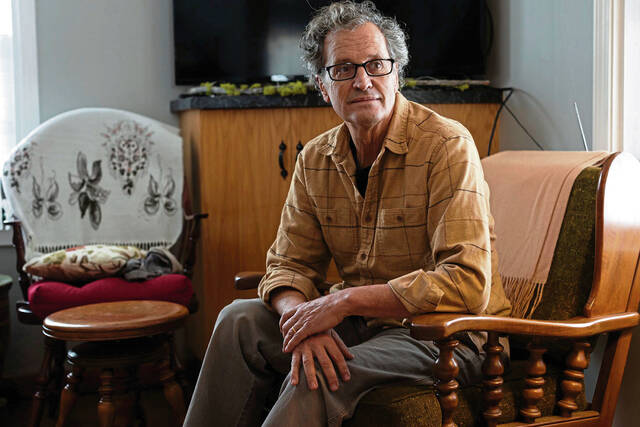As the covid-19 pandemic continues, questions regarding testing, vaccines and quarantine are constantly evolving. Dr. Amesh Adalja, a Pittsburgh-based infectious disease and critical care physician and senior scholar at the Johns Hopkins Center for Health Security, answered a range of questions from the Trib today.
Trib: There’s been a lot of debate about what type of testing should be used to identify who has the virus. Some say so-called rapid tests should be used because standard tests could diagnose people with insignificant amounts of the virus. What are the differences in tests? Are some better than others?
Adalja: There are two broad purposes we test for. The first is to diagnose someone who is sick. The second is screening. When you know someone is sick, you want to know what they have so you can treat them. When you’re looking at asymptomatic people, we want to know if they’re contagious.
The PCR test is accurate and highly sensitive. It is the gold standard test when you’re trying to diagnose a person with symptoms.
There is a push for these rapid antigen tests [for screening]. The people with low levels of the virus are not necessarily contagious.
The question is, what level of sensitivity do you need in an asymptomatic individual? There are different operating characteristics you would want in a test to determine whether someone is contagious and whether they harbor any of the virus.
Trib: The CDC has changed its guidance on testing and dropped its previous recommendation to test everyone who has come in close contact with an infected person. Should people get tested if they think they’ve been exposed to the virus? What about asymptomatic people?
Adalja: Initially, I thought it was because we’re trying to prioritize outpatient testing for people who have symptoms, which we should do.
It may also be political.
The guidance does talk about the fact that if you are a significant exposure to a case, local health departments may direct you to be tested. I think the guidance basically defers to state and local health departments. If you’re in a place where state and local health officials suggest you get tested, that’s the action you should take.
But a test is just one moment in time. Even if you do get a test, you still have to self-quarantine for 14 days.
Trib: If a college student tests positive for the coronavirus, should they return home or stay on campus under quarantine?
Adalja: I think if someone has mild symptoms or is asymptomatic, they can stay quarantined on a college campus.
We don’t want people that are infected to be traveling until they’re noncontagious. We don’t want them taking the virus home to their parents, who might be at higher risk due to their age.
[Campus quarantine space] needs to be some sort of designated area where people who are infected can stay so there’s no chance they interact with people who don’t have the virus.
Trib: Now that restrictions have been loosened for spectators at interscholastic sports events, is it safe to attend these events?
Adalja: In the era of the pandemic, there isn’t going to be any activity where you can reduce the risk of transmission to zero.
But it can be made relatively safe. I do think you can make high school sporting events relatively safe. I think it will eventually boil down to an individual’s risk tolerance, which is different for each person.
If they follow the general social distancing guidelines, it can be made relatively safe.
We have to anticipate there likely will be some transmission there.
It increases the risk of transmission or exposure when it’s indoors. The way to minimize the risk there — and the risk is always going to be non-zero — is to follow the social distancing recommendations.
Trib: The CDC has told public health officials nationwide to start preparing to distribute a vaccine in early November. The CDC has said the vaccine would go first to health care workers and high-risk groups. How realistic is it that people will get a vaccine by the end of the year?
Adalja: You have to remember the vaccine is not going to come out all at once. It’s going to come out in batches.
The general public is not going to be vaccinated until well into 2021.
I do think a November timeline is overly optimistic. We haven’t seen Phase III clinical data yet. I wouldn’t expect the November date is something that actually comes to fruition. We want the vaccine to become available only when we have efficacy data showing the vaccine actually works, as well as some form of safety data.
I think it’s within the realm of possibility that batches of the vaccine start to trickle out by the end of 2020.
There’s multiple different vaccines on multiple different time scales.
Vaccine development is something we usually measure in years, not months.
It’s important to remember the vaccine is likely going to require two doses. So this is something that’s going to take time to get the population immunized to the level it reaches herd immunity.
Trib: Allegheny County Health Director Debra Bogen and Executive Rich Fitzgerald announced Wednesday that they have received shots as part of a covid-19 vaccine trial. Should people sign up for the vaccine?
Adalja: Just like any medication or any vaccination, they all are going to have some side effect profile. They tend to be mild.
The benefit is the vaccine is promising and it may work, so you do get protection. But you don’t know what you get — if you’re getting the vaccine or the placebo. You’re not impervious to the virus.
Each of the trials has its own inclusion criteria. These trials are looking at adults, but there are different medical conditions they may or may not exclude.








